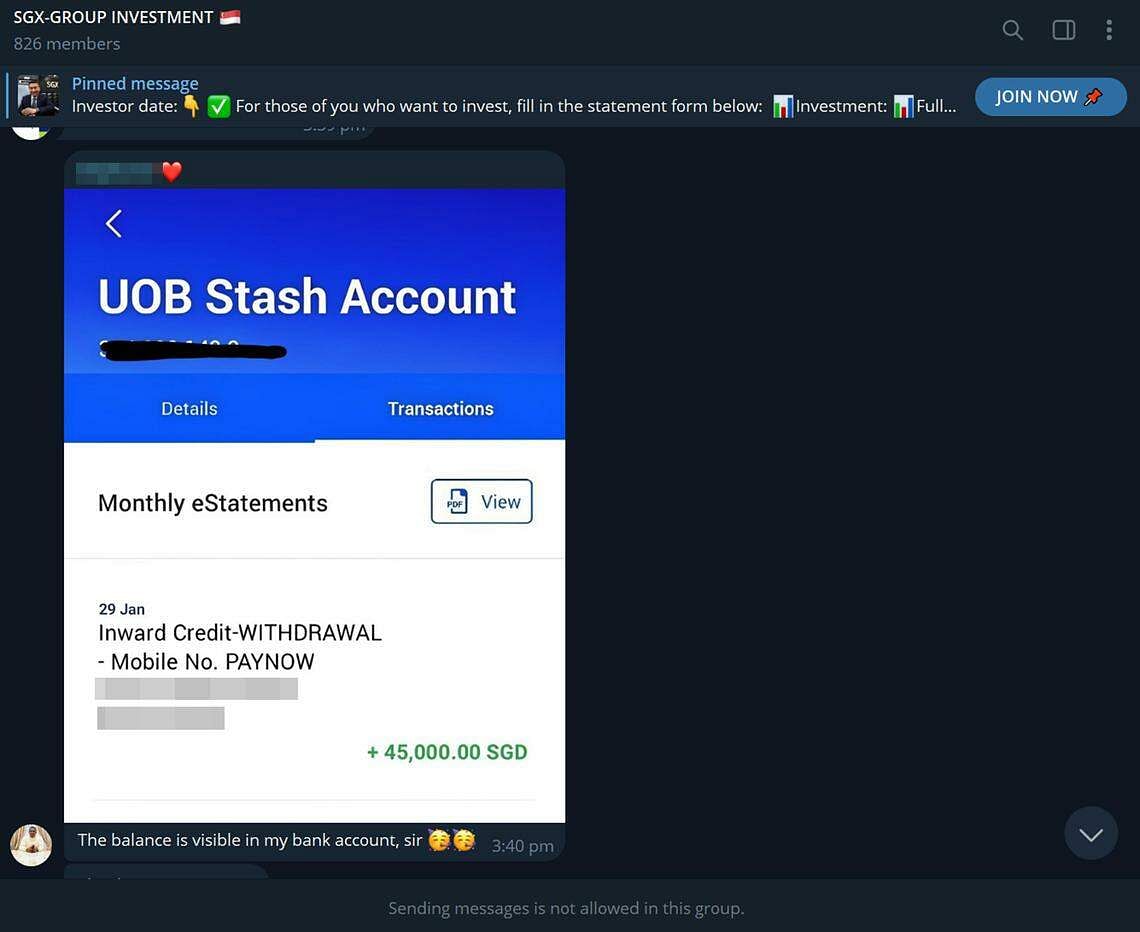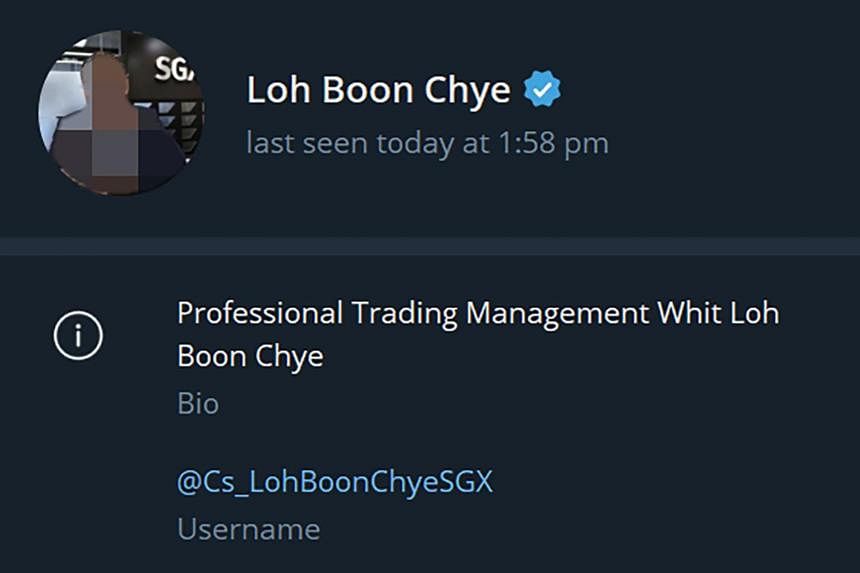SINGAPORE - It may look like a verified Telegram account, with a tick set in a blue star – a badge that the messaging platform uses to identify official sources.
But an icon resembling Telegram’s verification badge has become yet another trick to dupe victims in investment scams, The Straits Times has found.
In January, ST learnt that the Singapore Exchange (SGX) and the Republic’s sovereign wealth fund GIC were being impersonated in Telegram “investment” groups with hundreds of members.
ST found at least seven such groups, with the largest having more than 1,700 members.
One group administrator, impersonating SGX chief executive Loh Boon Chye, used a customised emoji that mimicked Telegram’s verification badge, a blue checkmark that the messaging platform gives only to large and active official channels, groups and bots. Telegram users have to pay to display an emoji next to their name.

Checks showed that scammers impersonating representatives from the affected financial institutions would dangle lucrative investments that allegedly yield profits within hours.
The ruse is reinforced by others in these groups who claim they have withdrawn their profits, providing screenshots of these transactions as proof.

Those who want to invest are asked to provide their personal information, including their name, bank account number, phone number and e-mail address.
The fake Mr Loh told ST, posing as an interested investor, that the money would be transferred to a bank account of the group’s “treasurer from SGX”. By Jan 30, some of the groups had changed their names or were no longer available on the platform.
When contacted, a spokeswoman for SGX Group said on Jan 29 that it does not provide stock recommendations nor collect deposits for investments.
“We also do not run any chat groups on social media platforms, and do not communicate one-on-one via Telegram or WhatsApp,” she said.
The spokeswoman said SGX works with a cyber-security agency and social media and messaging platform administrators to monitor and remove social media pages, websites, apps and chat groups which misuse or impersonate SGX Group and its employees.
She added that the firm has reported known fake accounts to the authorities, like the police and the Cyber Security Agency of Singapore, especially when there are potentially fraudulent activities involving fund transfers.
The spokeswoman said: “We urge investors to stay alert and be wary of scams that can take the form of online stock recommendations from unofficial sources or informal chat groups.
“Some scammers use compromised or spoofed social media accounts to spread and disseminate false information.”
GIC, meanwhile, had warned the public in 2022 of Telegram groups impersonating the fund.
The global investor said on its website that it does not provide investment services to the public, and would not respond to any complaints or queries about such fraud or scam.
The emergence of these fraudulent Telegram groups comes amid an increase in scam and cybercrime cases since 2019, with investment scam victims ranking second in terms of average losses to scams, according to Singapore’s latest cybercrime statistics.
Investment scams caused an average loss of about $60,000 in the first half of 2023, said the police in September 2023, adding that these victims tend to believe these “investments” were genuine after receiving small profits.
Once larger amounts of money or cryptocurrencies were transferred to scammers, the victims would realise they could not withdraw their earnings, or the scammers would be uncontactable.
To assess the reliability of a financial institution, the police has advised the public to check and clarify information against sources such as the Financial Institutions Directory, the Register of Representatives and the Investor Alert List on the Monetary Authority of Singapore’s website.
How to avoid falling into an investment scam
- Be wary of stock tips from unofficial sources.
- Investors cannot trade directly with SGX. They can trade only through licensed institutions or brokers.
- Subscription and redemption of Singapore Savings Bonds, T-Bills and other bonds are done through licensed banks. SGX will never ask for funding of trading accounts. SGX subsidiary The Central Depository only safekeeps assets for the group’s investors.
- Do not forward rumours and false information.
- Do not use or invite others to join unverified online channels and chat groups.


